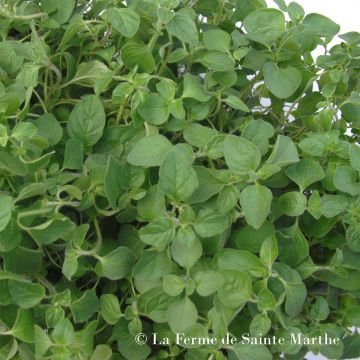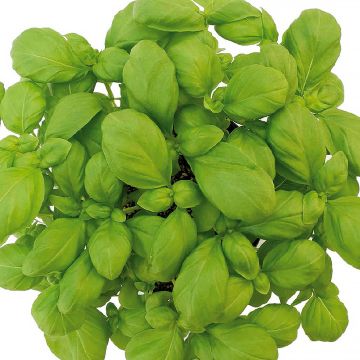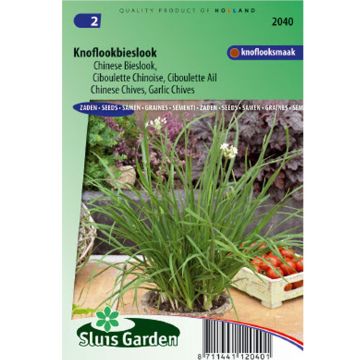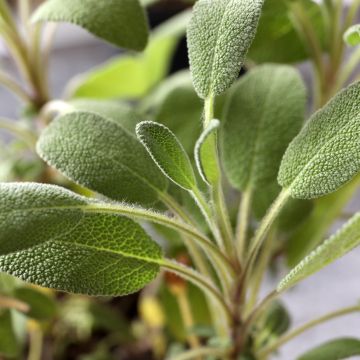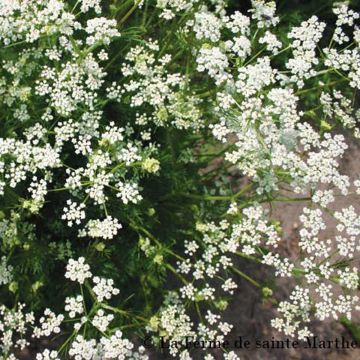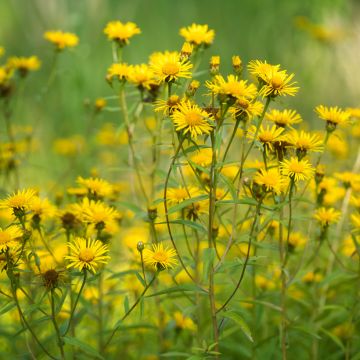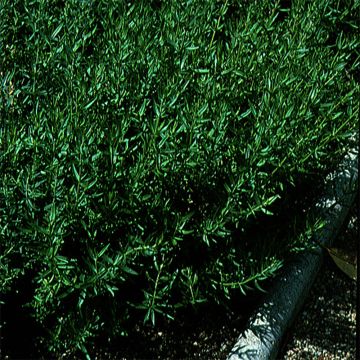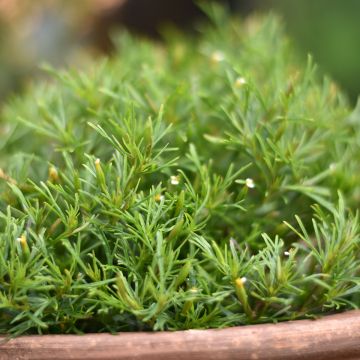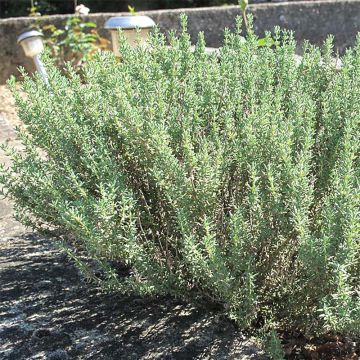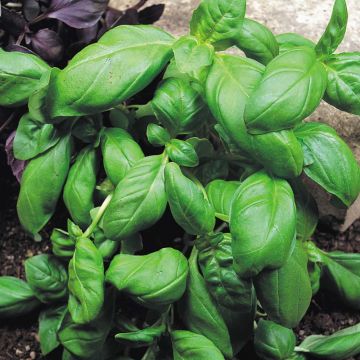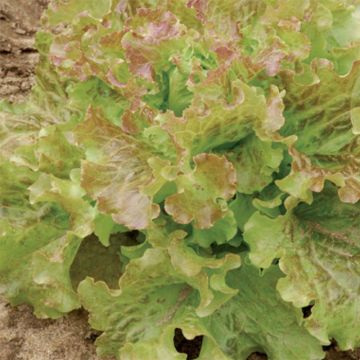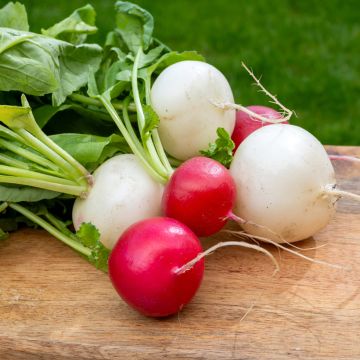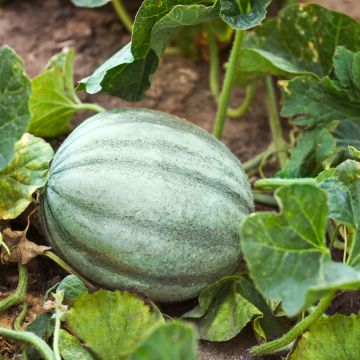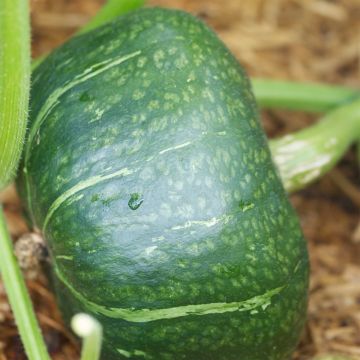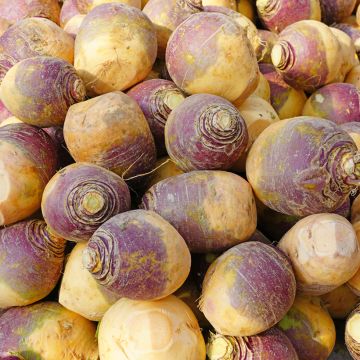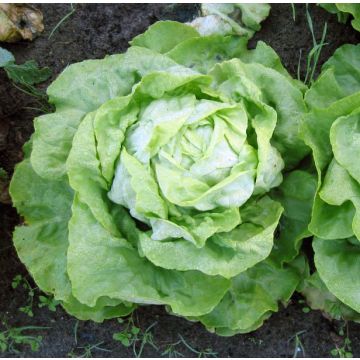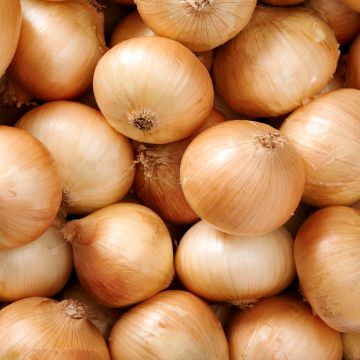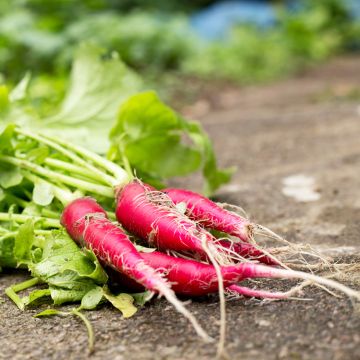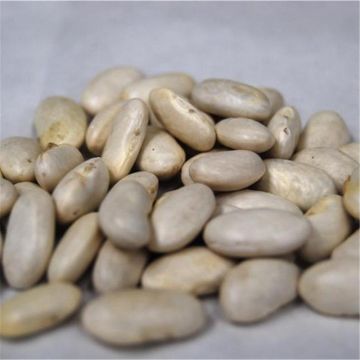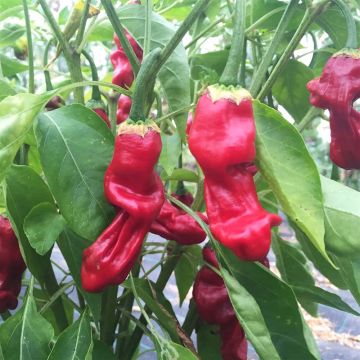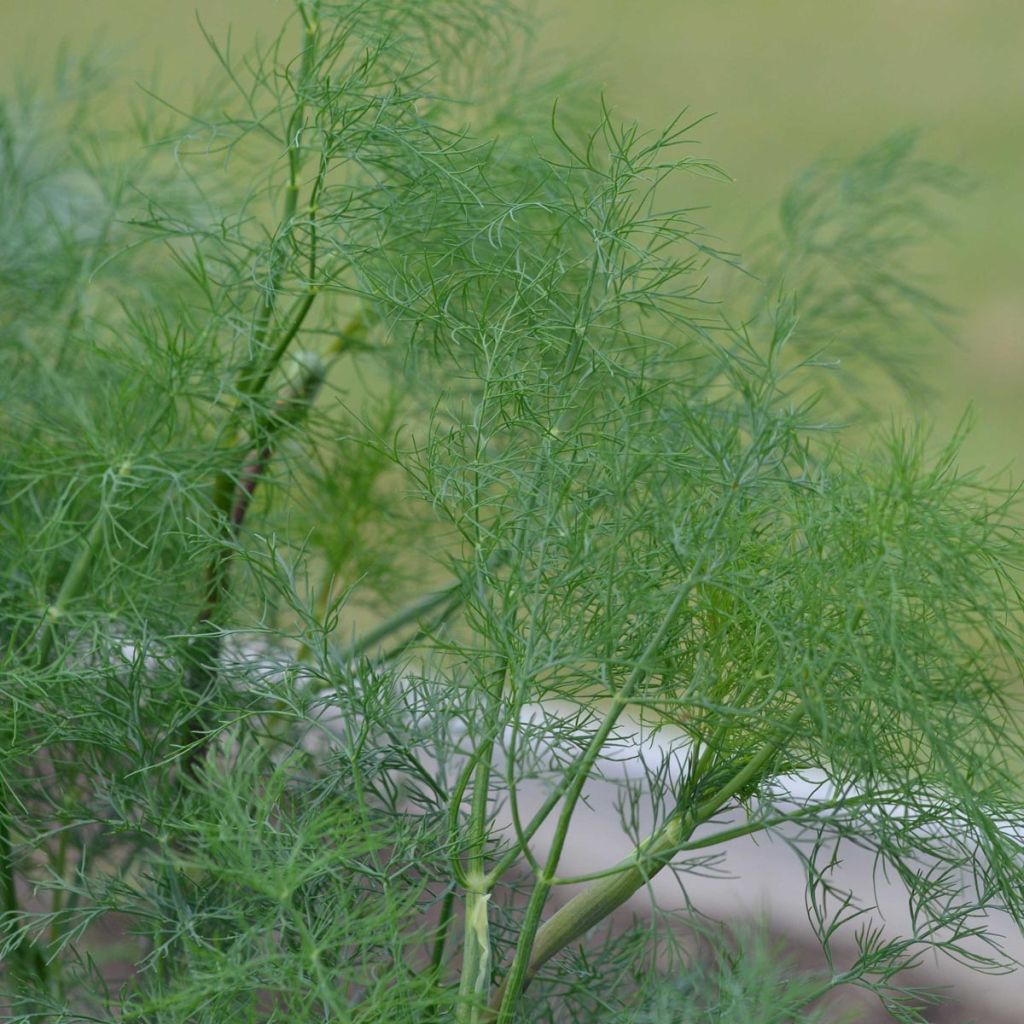

Hera Organic Dill - Ferme de Sainte Marthe seeds


Hera Organic Dill - Ferme de Sainte Marthe seeds
Hera Organic Dill - Ferme de Sainte Marthe seeds
Anethum graveolens
Dill weed
This item cannot be shipped to the selected country
Dispatch by letter from €3.90
More information
Schedule delivery date,
and select date in basket
This plant carries a 6 months recovery warranty
More information
We guarantee the quality of our plants for a full growing cycle, and will replace at our expense any plant that fails to recover under normal climatic and planting conditions.
Seed-only orders are dispatched by sealed envelope. The delivery charge for seed-only orders is €3.90.
Description
Dill 'Hera' is a variety renowned for its intense aroma, high productivity and bolt resistance. It can be grown undercover to significantly extend the growing season. Sow from April May and harvest 2 months later.
Dill (Anethum graveolens) is an annual herb native to the Mediterranean region. It belongs to the Apiaceae family (formerly Umbelliferae). In summer, charming umbels of beautiful acid yellow flowers appear, perched on long stems. Its foliage is made up of very thin green leaves, which give it a somewhat hazy appearance. This fast-growing plant varies a little in height depending on the variety, sometimes reaching 1.5 m in height.
Dill is grown as a condiment. Both the leaves and the seeds can be used in cooking to flavour fish, marinades, cold sauces, cottage cheese, court-bouillon etc. Its seeds are known to relieve indigestion. Dill tea helps promote restful sleep.
Dill is a pretty annual, much loved by insects, that will look attractive in a flower garden or in natural flower arrangements.
Plant it in a sunny spot, in rich, light, well-drained soil.
Harvesting: pick the leaves when required when the flavour is at its best, at the beginning of the growing season. When the flowers are in bloom, sit back and admire for a few weeks whilst the seeds set, then cut the flower heads in order to collect the seeds. They can be laid out to dry on a sheet of newspaper or cloth.
Preservation: dill leaves and seeds can be dried and stored in airtight boxes for later use.
Good to know: Dill is a great companion plant in the vegetable garden: it repels carrot flies, aphids, red spider mites and leek moths. The proximity of cabbage makes dill more resistant and more productive.
Maintenance: dill is fairly low maintenance. Watering (or preventive mulching) when the soil dries up will prevent water stress, which causes the plant to go to seed.
Transplanting: space the plants 30 cm apart
NB. Organic seeds (in French "AB" for "Agriculture Biologique") are produced from plants that aren't treated with phytosanitary products (insecticides, weed killers). The seeds do not undergo post-harvest treatment. They carry the AB label and are approved by Ecocert, an independent structure.
NB. Organic seeds (in French "AB" for "Agriculture Biologique") are produced from plants that aren't treated with phytosanitary products (insecticides, weed killers). The seeds do not undergo post-harvest treatment. They carry the AB label and are approved by Ecocert, an independent structure.
Report an error about the product description
Harvest
Plant habit
Foliage
Botanical data
Anethum
graveolens
Apiaceae
Dill weed
Cultivar or hybrid
Annual
Other Herb seeds
Planting and care
Dill likes fresh, loose, humus-rich soil. It needs a sunny exposure sheltered from strong winds in order to develop properly.
Sowing: sow in the Spring, from February onwards in a cold frame or in place from April until early summer. Sow lightly in shallow furrows, about 10 cm wide and 2 cm deep. Space the rows about 25 cm apart. Cover the seeds with soil and water. Germination takes between 15 and 20 days. As soon as the first seedlings appear, thin them out by keeping the strongest, approximately one every 20 cm. Stagger your sowing for a longer harvest period.
Transplanting: space the plants 30 cm apart
Care: dill is fairly low maintenance. Watering (or preventive mulching) when the soil dries up will prevent water stress which causes the plant to go to seed.
Seedlings
Care
Intended location
-
, onOrder confirmed
Reply from on Promesse de fleurs
Vegetable seeds
Haven't found what you were looking for?
Hardiness is the lowest winter temperature a plant can endure without suffering serious damage or even dying. However, hardiness is affected by location (a sheltered area, such as a patio), protection (winter cover) and soil type (hardiness is improved by well-drained soil).

Photo Sharing Terms & Conditions
In order to encourage gardeners to interact and share their experiences, Promesse de fleurs offers various media enabling content to be uploaded onto its Site - in particular via the ‘Photo sharing’ module.
The User agrees to refrain from:
- Posting any content that is illegal, prejudicial, insulting, racist, inciteful to hatred, revisionist, contrary to public decency, that infringes on privacy or on the privacy rights of third parties, in particular the publicity rights of persons and goods, intellectual property rights, or the right to privacy.
- Submitting content on behalf of a third party;
- Impersonate the identity of a third party and/or publish any personal information about a third party;
In general, the User undertakes to refrain from any unethical behaviour.
All Content (in particular text, comments, files, images, photos, videos, creative works, etc.), which may be subject to property or intellectual property rights, image or other private rights, shall remain the property of the User, subject to the limited rights granted by the terms of the licence granted by Promesse de fleurs as stated below. Users are at liberty to publish or not to publish such Content on the Site, notably via the ‘Photo Sharing’ facility, and accept that this Content shall be made public and freely accessible, notably on the Internet.
Users further acknowledge, undertake to have ,and guarantee that they hold all necessary rights and permissions to publish such material on the Site, in particular with regard to the legislation in force pertaining to any privacy, property, intellectual property, image, or contractual rights, or rights of any other nature. By publishing such Content on the Site, Users acknowledge accepting full liability as publishers of the Content within the meaning of the law, and grant Promesse de fleurs, free of charge, an inclusive, worldwide licence for the said Content for the entire duration of its publication, including all reproduction, representation, up/downloading, displaying, performing, transmission, and storage rights.
Users also grant permission for their name to be linked to the Content and accept that this link may not always be made available.
By engaging in posting material, Users consent to their Content becoming automatically accessible on the Internet, in particular on other sites and/or blogs and/or web pages of the Promesse de fleurs site, including in particular social pages and the Promesse de fleurs catalogue.
Users may secure the removal of entrusted content free of charge by issuing a simple request via our contact form.
The flowering period indicated on our website applies to countries and regions located in USDA zone 8 (France, the United Kingdom, Ireland, the Netherlands, etc.)
It will vary according to where you live:
- In zones 9 to 10 (Italy, Spain, Greece, etc.), flowering will occur about 2 to 4 weeks earlier.
- In zones 6 to 7 (Germany, Poland, Slovenia, and lower mountainous regions), flowering will be delayed by 2 to 3 weeks.
- In zone 5 (Central Europe, Scandinavia), blooming will be delayed by 3 to 5 weeks.
In temperate climates, pruning of spring-flowering shrubs (forsythia, spireas, etc.) should be done just after flowering.
Pruning of summer-flowering shrubs (Indian Lilac, Perovskia, etc.) can be done in winter or spring.
In cold regions as well as with frost-sensitive plants, avoid pruning too early when severe frosts may still occur.
The planting period indicated on our website applies to countries and regions located in USDA zone 8 (France, United Kingdom, Ireland, Netherlands).
It will vary according to where you live:
- In Mediterranean zones (Marseille, Madrid, Milan, etc.), autumn and winter are the best planting periods.
- In continental zones (Strasbourg, Munich, Vienna, etc.), delay planting by 2 to 3 weeks in spring and bring it forward by 2 to 4 weeks in autumn.
- In mountainous regions (the Alps, Pyrenees, Carpathians, etc.), it is best to plant in late spring (May-June) or late summer (August-September).
The harvesting period indicated on our website applies to countries and regions in USDA zone 8 (France, England, Ireland, the Netherlands).
In colder areas (Scandinavia, Poland, Austria...) fruit and vegetable harvests are likely to be delayed by 3-4 weeks.
In warmer areas (Italy, Spain, Greece, etc.), harvesting will probably take place earlier, depending on weather conditions.
The sowing periods indicated on our website apply to countries and regions within USDA Zone 8 (France, UK, Ireland, Netherlands).
In colder areas (Scandinavia, Poland, Austria...), delay any outdoor sowing by 3-4 weeks, or sow under glass.
In warmer climes (Italy, Spain, Greece, etc.), bring outdoor sowing forward by a few weeks.

































